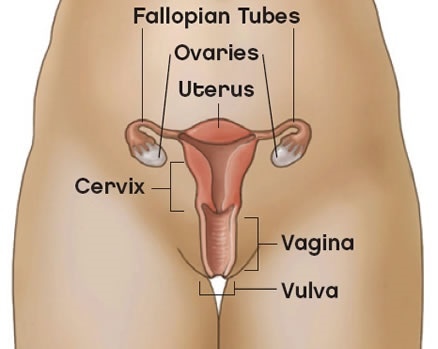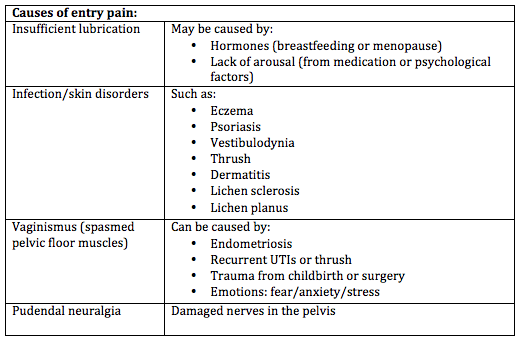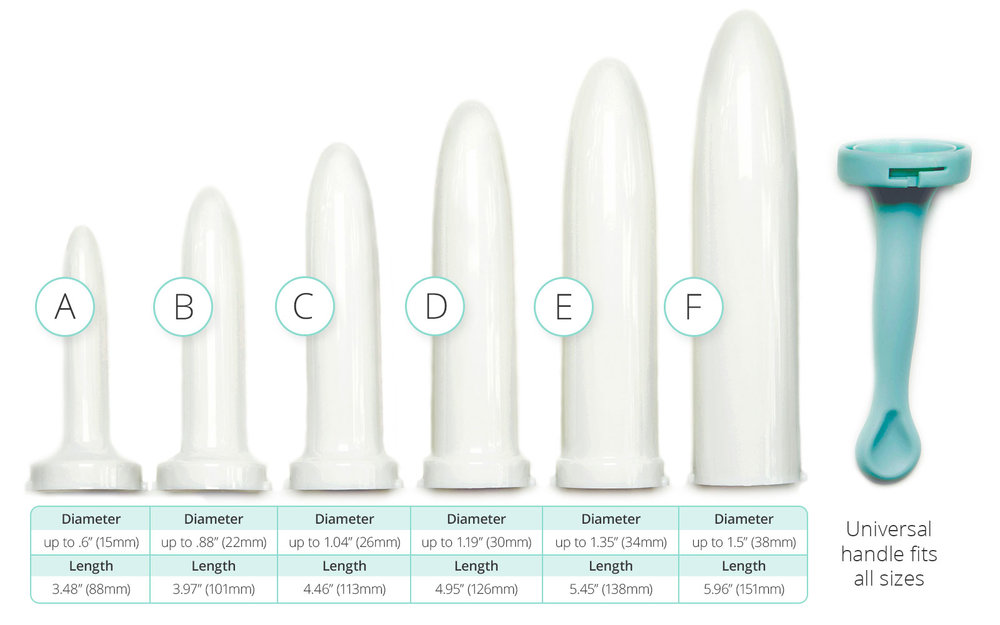Dyspareunia, vaginismus, vulvodynia, vestibulodynia. They’re all words thrown around to describe painful sex. Confusing right? There are many causes of painful sex, and women may feel it in different places, at different stages of their life (post-natal, post-menopausal and late teens/early 20’s are common times) and it may be multifactorial in its cause. In any case, dyspareunia is very distressing. Inserting tampons may be difficult too, and pap-smears are near on impossible. So, I’ve attempted to describe dyspareunia and it’s causes, so you can start to learn what might be causing pain, and the best way to go about seeking help.
Firstly, lets start with a very basic anatomy lesson.

When discussing the anatomy of the outside of the female genitalia, we use the word vulva. The vulva encompasses everything you can see from the outside: clitoris, labia, urethral opening and the opening of the vagina.

The vagina is the tube that connects the uterus and cervix to the outside world, or to the vulva. It’s your middle passage out of your 3 passages (urethra, vagina and anus), and usually used for penetrative intercourse, childbirth, pap-smears and whatever else takes your fancy.
Causes
Dyspareunia is pain that is experienced when something is inserted (or attempted to be inserted) into the vagina. We can split it into 2 different areas that pain in experienced: Entry pain and deep pain.


In many cases, no matter what the diagnosis is, there are often emotional causes too. It may be the case of ‘the chicken and the egg’. What came first? Emotional issues, or painful sex? Did emotional issues cause tension to be held in the pelvic floor muscles and cause pain? Or did the pain cause emotional stress and anxiety, which can further worsen pain? Emotional issues may be due to stress, being self-conscious, depression (cue Sex and the City ‘depressed vagina’ scene) or fear of intimacy. Some women with dyspareunia may have a history of trauma, including sexual or emotional abuse.
Treatment
The right treatment depends on the cause of the pain. First and foremost, see your GP to check for medical issues. They will refer you to specialists such as:
- Gynaecologists for pelvic organ prolapse, endometriosis, fibroids or surgical issues.
- Dermatologists for skin disorders
- Colorectal doctors for issues like IBS, haemorrhoids or prolapse
- Endocrinologist for hormone issues
- Pelvic floor physiotherapists for management of chronic pain, spasmed pelvic floor muscles and bladder and bowel issues
- Psychologists for individual, couples or sexual counselling
Research has shown that in the vast majority of cases, the gold standard for treatment is a multidisciplinary approach i.e. seeing a doctor, physio and a psychologist for treatment. Treatment rarely delivers instantaneous results, and it may take some time to notice any change with therapy. Remember, SEX DOES NOT HAVE TO BE PENETRATIVE TO BE ENJOYABLE, and be aware that you may need to learn new sexual techniques and do things a little differently in order for you and your partner to have a mutually fulfilling sex life.
Most of the causes of painful sex are accompanied by vaginismus (tight or spasmed pelvic floor muscles). Women with vaginismus describe the sensation as ‘I’m just too tight for penetration’, ‘I feel like my vagina clamps down on the penis’ or ‘it feels like there’s something in the way’.
Pelvic floor physiotherapy for dyspareunia may include these treatments:
- Education on pelvic floor muscle function and relaxation techniques
- Vaginal dilators (PIC) to gradually expose the tissue to touch, stretch and movement
- General exercise advice
- Bladder and bowel function advice
- General relaxation techniques
- Full body assessment and individualised exercises to address dysfunction
- Referral to other practitioners specialising in the field i.e. psychologists

But the most important thing? STOP TRYING TO HAVE PENETRATIVE SEX IF IT IS SORE! There’s no need to ‘grit your teeth and bear it’ or to ‘lie back and think of England’. In fact, each painful episode may be making you MORE sensitive and, therefore, sex MORE painful. STOP. Shut up the vaginal shop. And take your bits to your GP and pelvic floor physio.
~ the vagina physio








